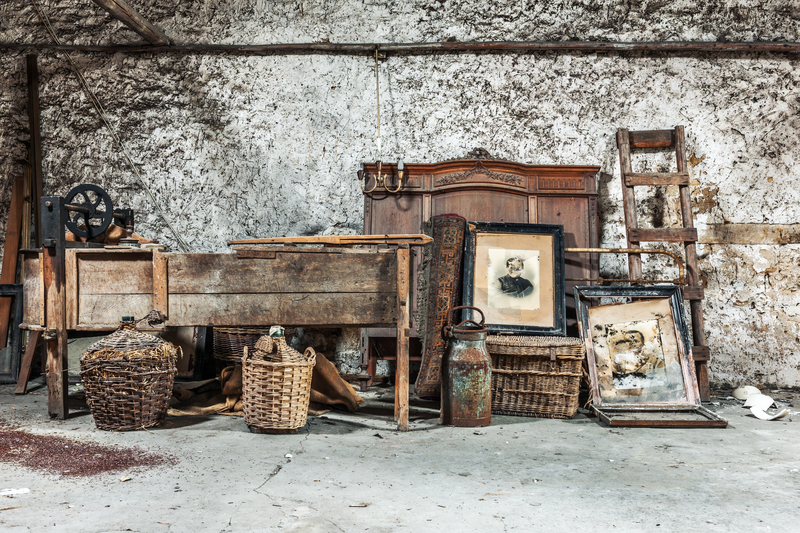Donating Furniture Before Relocating
Relocating to a new home is a significant life event that involves substantial planning, time, and effort. Among the myriad of tasks to tackle, one critical aspect is dealing with furniture. Instead of taking all your belongings with you, donating furniture before relocating can be a rewarding and beneficial choice. This comprehensive guide will provide you with all the necessary information on how to go about it effectively and responsibly.
The Benefits of Donating Furniture
Donating furniture doesn't just help you declutter; it also comes with a different array of benefits.
- Environmental impact: By donating furniture, you extend the life of your items and reduce waste. It's a sustainable choice that contributes to a healthier planet.
- Helping those in need: Many organizations distribute donated furniture to families and individuals in need. Your old furniture could help someone set up a home, provide comfort, or even aid in recovery from difficult situations.
- Tax benefits: In many cases, donations are tax-deductible. Make sure to get a receipt from the organization, and consult with a tax advisor to understand how you might benefit.
- Simplifying your move: The less you have to move, the easier and cheaper your relocation process will be. It also means less packing, hassle, and worry.

Choosing the Right Organization
When it comes to donating furniture, there are numerous organizations to consider. Some are local, while others are national or even international. Here are some popular options:
- Goodwill: Goodwill operates through a vast network of stores and donation centers. They accept a wide range of furniture, and the proceeds go to job training and employment programs for those in need.
- Salvation Army: The Salvation Army is well-known for its extensive charity work. They operate thrift stores where donated furniture is sold to support rehabilitation programs and other social services.
- Habitat for Humanity ReStores: These nonprofit home improvement stores and donation centers sell new and gently used furniture. The earnings help build affordable housing for families in need.
- Local shelters and charities: Consider donating to local shelters, churches, or smaller charitable organizations that might not have a high profile but still do significant work in your community.
Do some research to find an organization whose mission aligns with your values, and inquire about their specific donation requirements and procedures.
Preparing Your Furniture for Donation
Before you donate, it's essential to ensure your furniture is in good condition. Here's how to prepare your items:
- Clean thoroughly: Make sure your furniture is clean and free of stains, pet hair, and odors. This not only makes it more presentable but also ensures it will be readily accepted by the organization.
- Check for damages: Inspect your furniture for any damages. Most organizations accept gently used furniture but may decline items that are broken, heavily worn, or structurally unsound.
- Disassemble if needed: If your furniture can be disassembled (like beds or large shelving units), doing so can make it easier to transport and accept by donation centers.
Taking these steps ensures your donation will be beneficial for the recipient and makes the process smoother for everyone involved.
Scheduling a Pickup or Delivery
Once your furniture is ready for donation, you'll need to decide whether to drop it off yourself or schedule a pickup. Many organizations offer free pickup services for larger items, which can be highly convenient. However, this often requires scheduling in advance due to high demand. Here's how to go about it:
- Contact the organization: Reach out to the chosen charity to inquire about their pickup options, availability, and any specific guidelines they might have.
- Arrange a convenient time: Many organizations allow you to select a particular time slot for the pickup. Choose a time that suits your schedule and ensure you'll be available.
- Prepare for pickup: On the day of the pickup, ensure all furniture is easily accessible for the movers. This might mean moving items closer to the door or into a garage.
If a pickup isn't available or doesn't fit your schedule, many donation centers accept drop-offs. Ensure you have suitable transportation and enlist help if needed to prevent any injuries.
What Happens to Your Donated Furniture?
It's inspiring to know what happens to your donated furniture once it leaves your hands.
- Distribution to families in need: Some organizations directly distribute furniture to families who are coming out of homelessness, fleeing domestic violence, or recovering from natural disasters.
- Sold in thrift stores: Many charities, such as Goodwill and the Salvation Army, sell donated furniture in their thrift stores. The proceeds often fund various programs, including job training, educational initiatives, and rehabilitation programs.
- Recycle or refurbish: Items that aren't immediately usable may be refurbished or recycled. This process extends the life of the furniture and ensures that materials don't go to waste.
Understanding the journey of your donated furniture can add a layer of satisfaction to the giving process, knowing you've made a tangible difference in someone's life.

Making the Most of Your Donation
To maximize the impact of your donation, consider the following tips:
- Donate thoughtfully: Consider what items will be most useful to others. High-demand items include beds, sofas, dining tables, and bookshelves.
- Bundle donations: If possible, donate more than one item at a time. This approach can be more efficient for both you and the donation center.
- Spread the word: Encourage friends, family, and neighbors to join you in donating. A combined effort can multiply the benefits and aid the charity in a more substantial way.
Being mindful of these strategies not only enhances the donation process but also amplifies its positive impact on the community and environment.
Conclusion
Donating furniture before relocating serves multiple purposes--it aids those in need, benefits the environment, and makes your move more manageable. By choosing the right organization, preparing your items, and understanding the benefits, you can turn a potentially stressful process into a fulfilling and impactful experience. Whether you're downsizing, upgrading, or just changing locations, always remember that your old furniture could be the key to someone else's fresh start.
So, as you plan your next move, take the time to donate your furniture. It's a small step that can make a big difference in the lives of others, and leave you with the satisfaction of having contributed to your community in a meaningful way.





